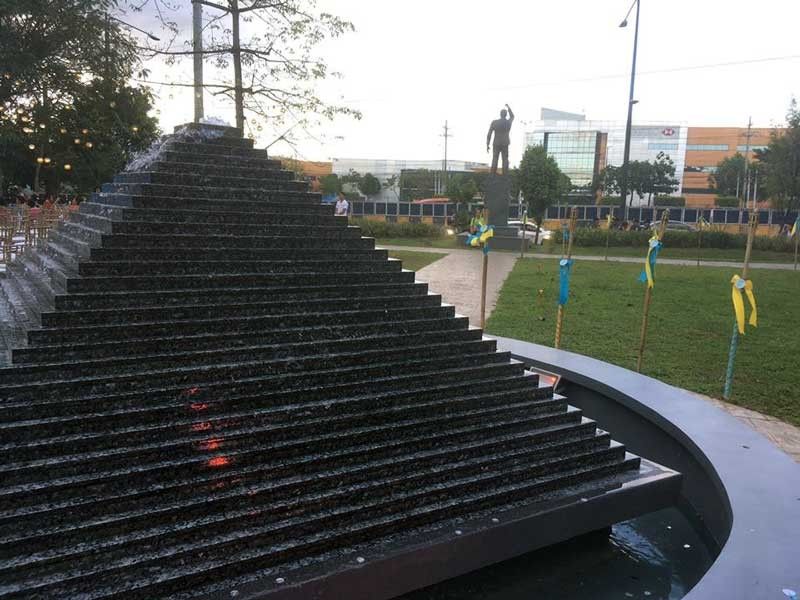CHR: Freedom Parks protected from 'no permit, no rally' policy

MANILA, Philippines — The Commission on Human Rights expressed concern Sunday over conflicting statements from the national police and the interior department after the latter issued a memorandum prohibiting mass gatherings despite the former saying it would not use the coronavirus pandemic to crack down on protesters.
In a statement issued Sunday, the commission reiterated that the Liwasang Diokno in the Commission on Human Rights grounds, which is also part of the University of the Philippines campus, is a Freedom Park protected by Batas Pambansa Bilang 880 that does not need a permit for protests and programs.
The commission also disclosed that it would be deploying monitoring teams in view of ensuring balance between exercising rights and the corresponding obligation of everyone to protect other people’s rights as well by not causing the spread of virus among others.
"The change in messaging is stark: from PNP’s willingness to remind and assist protesters observe minimum health standards to express their opinion to a complete ban on mass gatherings," the commission's statement read.
"Such decision from the Philippine government comes at a time when studies from countries such as the United States and Australia show that protests have not caused a spike in virus infections for as long as protesters equally mitigate the risks by wearing face masks; practicing physical distancing; ensuring one's hands are clean; staying home if they are sick; and other health safety protocols similarly reminded by the World Health Organization for those attending rallies," it also said.
In an earlier protest at the commission's grounds, an officer of the Quezon City Police District wearing civilian attire was arrested for bringing a gun into a freedom park during a peaceful protest. QCPD later claimed he was robbed and mauled by protesters unprovoked.
PNP: Just protest online
Police Gen. Archie Gamboa, chief of the national police, also asked demonstrators on Monday to hold their protest actions over the Internet instead, though the PNP has already arrested a number of protesters for holding online protests.
Others who were practicing social distancing were also arrested.
Interior Spokesperson Jonathan Malaya in a statement on Sunday denied that the memorandum had anything to do with the upcoming State of the Nation Address of the chief executive and the protest actions planned for that day.
"We wish to reiterate that any kind of mass gathering during a global pandemic, whether rallies, church gatherings, sports events, concerts, etc. all represent a high risk of COVID transmission. This is not and will never be unique to rallies. Thus, upon the advice of the Department of Health, the IATF issued Resolution No. 57 prohibiting any form of mass gathering as a measure against the further spread of COVID-19," he said.
LOOK: Stranded individuals cramped up inside Rizal Memorial Sports Complex
"Therefore, upon the advice of the medical community, we strongly urge the public to avoid mass gatherings of any kind at this time due to the high risk of COVID transmission. While we agree that the public has the right to peacefully assemble for the redress of grievances, we are in the middle of a global pandemic, and such assemblies are subject to reasonable regulation of the authorities to protect public health and the general welfare," he added.
Days later on Saturday, Police Brig. Gen. Bernard Banac, the agency's spokesperson, told The STAR that police would not hesitate to use force and would strictly implement the no permit, no rally policy for any rallies that would be held.
President Rodrigo Duterte himself has ordered the police to "have no qualms" in arresting quarantine violators, saying in the same breath that he "hates" giving out orders to arrest Filipinos.
"We stress the importance of everyone’s compliance to health protocols. After all, we are under a national health emergency," CHR said.
"But, even in the face of a pandemic, human rights need to be recognised. We must equally think of the implications to public health when we don’t demand for accountability and better services from the government that has the obligation to protect its people," it added.
— with a report from The STAR/Emmanuel Tupas
- Latest
- Trending






























